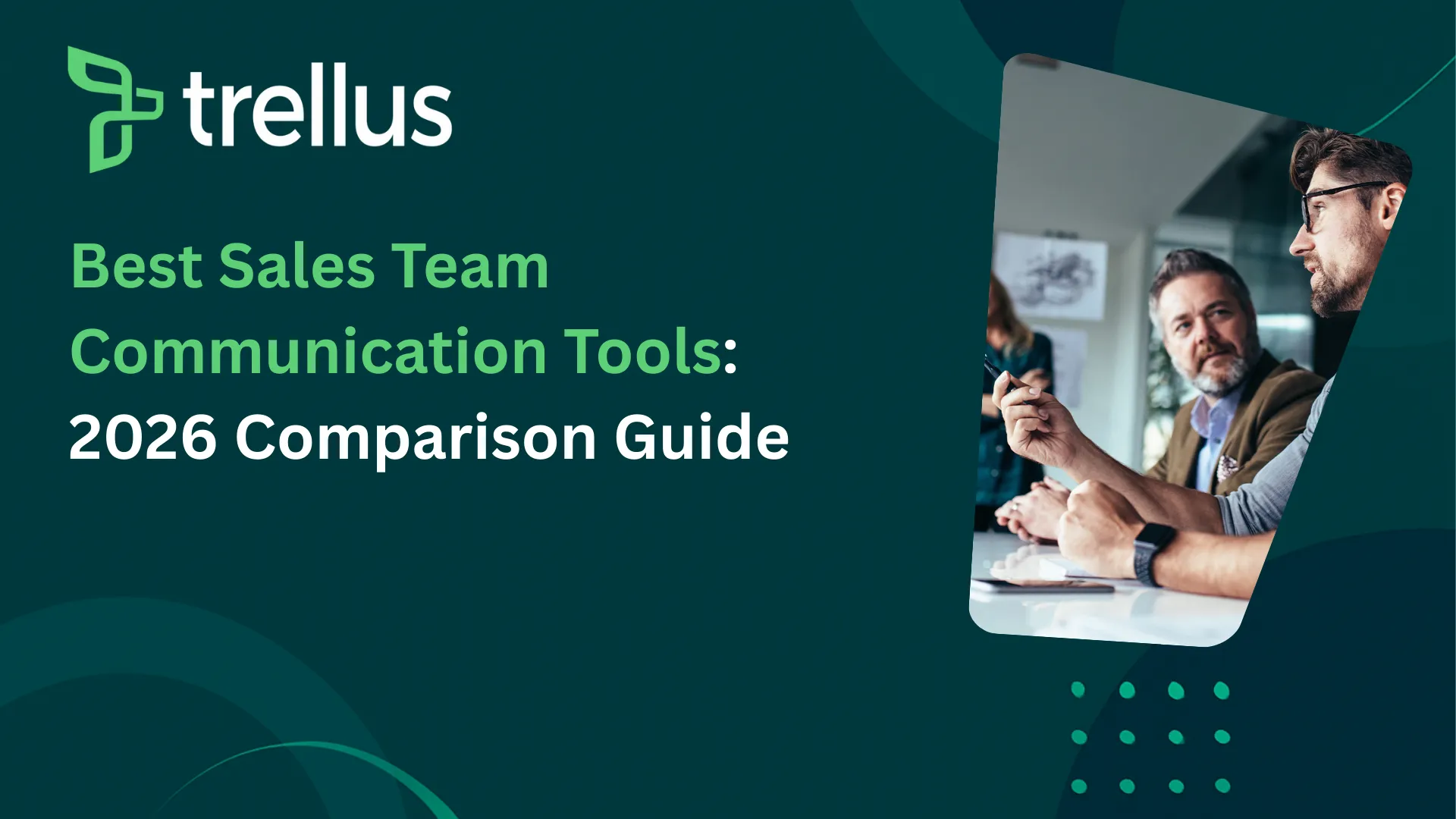
Our Top Picks


Modern outbound sales teams operate in fast-paced environments that demand sharp instincts, strong emotional intelligence, alongside real-world conversation skills that simply cannot be trained through old-school methods.
Traditional sales coaching—usually a mix of shadowing, manager-led feedback, and roleplaying with team members—often falls short. It's inefficient, inconsistent, and, more often than not, awkward.
Sales professionals deserve better. So do the businesses relying on them.
That’s why a new breed of training technology is rising to prominence: top AI roleplay platforms for coaching.
These systems simulate prospect conversations across sales stages, creating immersive training experiences tailored to outbound environments. The result isn’t just improved confidence—it’s consistent conversion improvement at scale.
For revenue leaders managing cold outreach, inbound lead handling, or mid-funnel discovery conversations, AI coaching offers a sharper, smarter way to prepare reps.
And for those who value feedback, accountability, and scalable sales skill development, roleplaying AI may already be an essential part of your stack.
Why Traditional Sales Roleplay Doesn’t Deliver Results in 2025
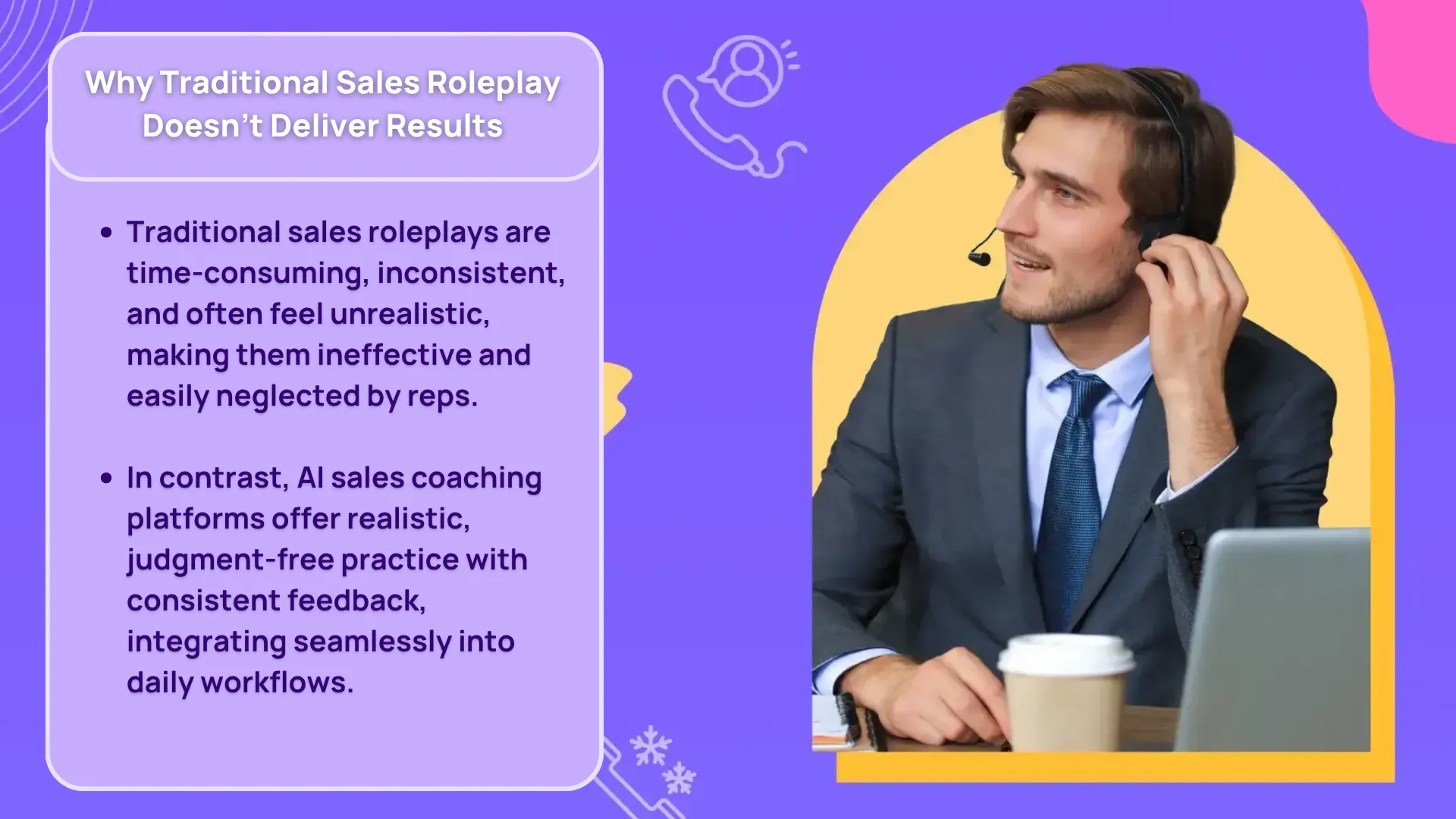
Classic sales training exercises—like pairing up with a teammate to practice objection handling—still exist in some form. But they come with friction.
The most important underlying factor is time.
They take time away from actual selling, and in a sales context where calls have to be made day in; day out, time is literally money.
Coordinating calendars, setting up mock scenarios, and reviewing recordings is not a light lift. Then there’s the inconsistency.
One manager might praise a rep’s tonality while another focuses on objection rebuttals, leading to conflicting feedback loops.
Most importantly, traditional roleplays often feel artificial. There’s a reason reps roll their eyes during mock sessions. They don’t replicate the pressure, unpredictability, or emotional nuance of actual conversations.
On top of that, many reps avoid practice altogether when it means being judged in real-time by peers or supervisors. Training gets neglected. And sales performance plateaus.
AI sales coaching platforms eliminate these roadblocks. They replicate real buyer behavior, give feedback that’s rooted in measurable patterns, and allow reps to practice repeatedly without fear of embarrassment. Roleplaying becomes part of the workflow, not a chore.
What Defines the Best Roleplaying AI in Sales Training Today
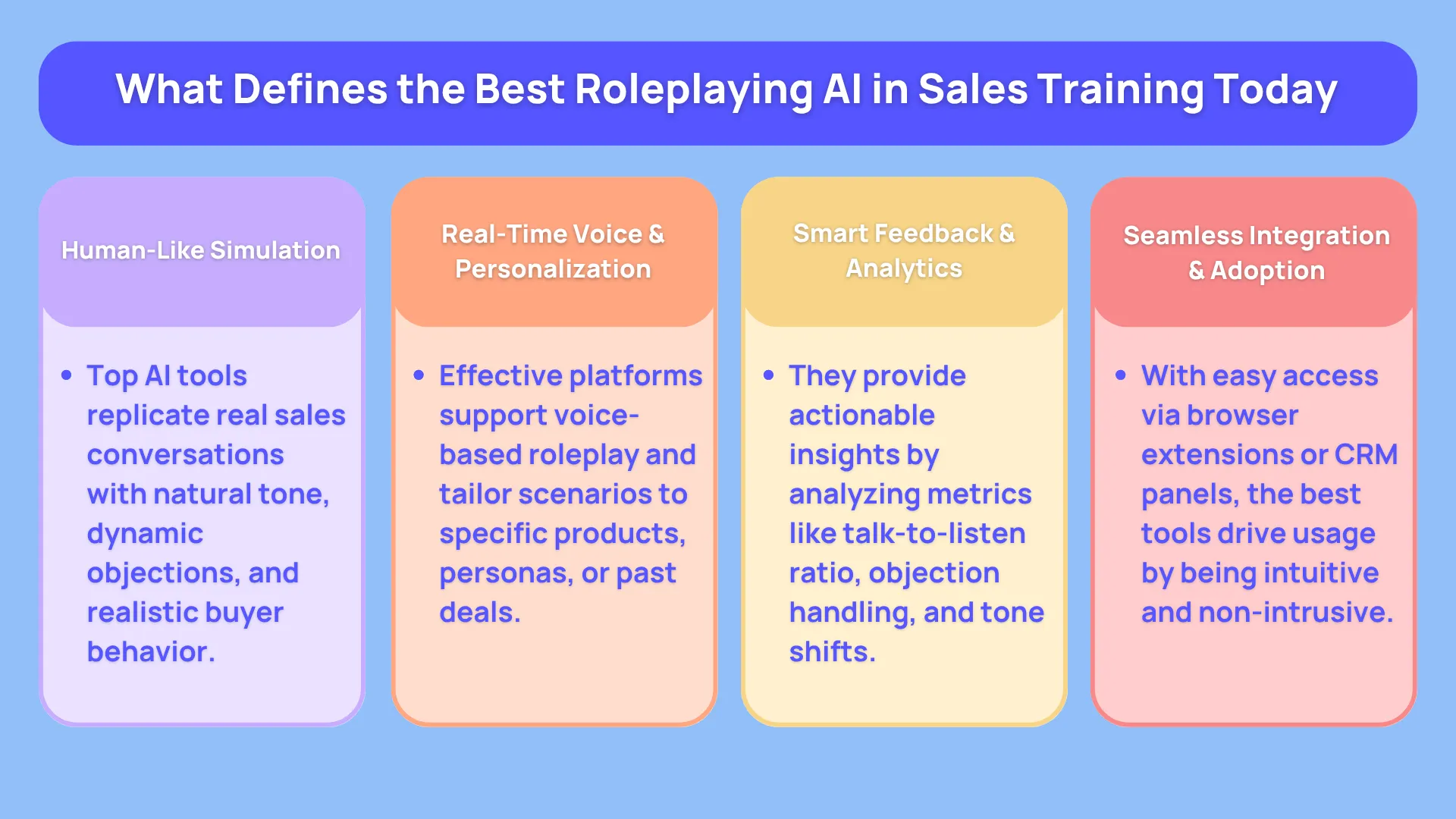
Not all AI sales tools deliver the same training value. For outbound teams, the gold standard includes:
- Lifelike simulations that mimic human tone, unpredictability, and objection logic.
- Real-time voice interactions—typed chatbots don’t capture spoken dialogue dynamics.
- Scenario personalization based on product, prospect profile, or deal history.
- Feedback engines that evaluate talk-to-listen ratio, word choice, objection response time, and tone shifts.
- Seamless access through Chrome extensions, mobile apps, or CRM-side panels.
For managers, the best AI chat bot for roleplay solutions offer progress tracking across teams, identifying who’s improving, who needs work, and which areas require immediate intervention.
Most importantly, top tools encourage practice through design. If reps don’t want to use it, it doesn’t matter how smart the AI is.
Top AI Roleplay Platforms for Coaching Sales Teams in 2025
Outbound sales success starts with preparedness. These platforms help reps prepare in ways that reflect the real-world pressure of live calls.
1. Trellus – Real-Time Sales Coaching With Built-In Roleplay Simulation

Trellus is positioned as an active layer within your live sales floor.
Rather than just a roleplay simulator, it’s a smart overlay that supports reps during live interactions—whether they’re handling cold outreach, conducting warm follow-ups, or managing inbound interest.
One of Trellus’s core features is AI-assisted live coaching. During actual sales conversations, the system listens silently and delivers non-intrusive cues when performance drops.
If a rep’s pacing slips, or if their tone shifts under pressure, the program automatically cues them on the spot.
What sets this tool apart from the rest of the competition as one of the top AI roleplay platforms for coaching is the fusion of simulation with post-call improvement.
Reps can re-engage with moments from real calls and simulate new versions of that same moment—testing different responses, experimenting with alternative closes, and learning through iterative trial.
Built as a lightweight Chrome extension, it fits directly into the daily tools reps already use.
Trellus also includes features like embedded parallel dialing for high-volume call blitzes and a dedicated LinkedIn outreach assistant, which we like to call: LinkedIn Superhuman. This feature was especially developed to give outbound teams an edge across every touchpoint, especially while they’re busy researching prospects.
2. MeetRecord – AI Roleplay Personalized Through Deal Intelligence
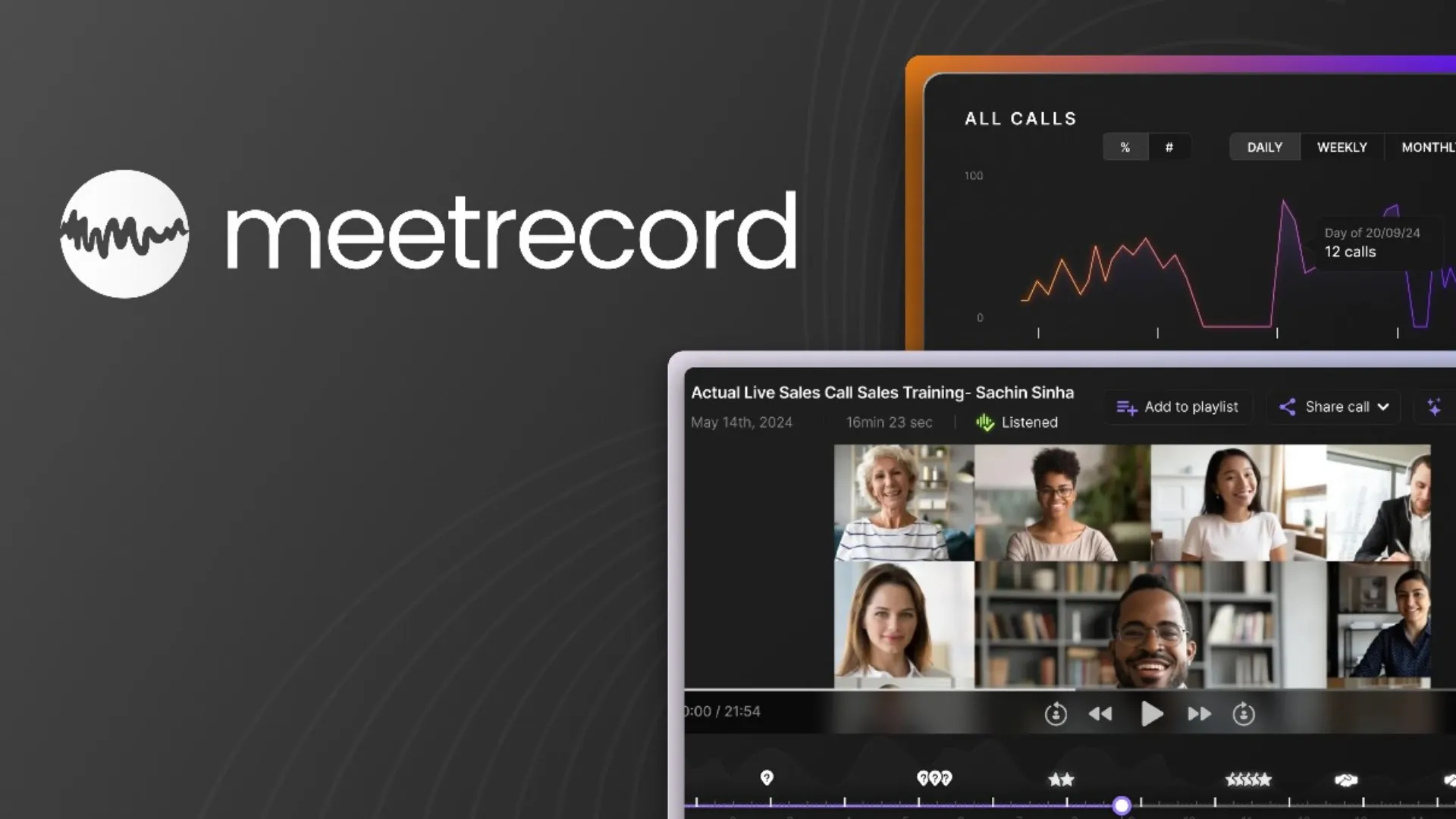
MeetRecord offers a more data-centric take on roleplaying AI.
It creates simulations based not on imagined buyer personas, but on actual deals pulled from the team’s CRM.
Reps can rehearse conversations with AI versions of their real prospects. Voice tones, objection patterns, and even response pacing are matched to real recordings, meaning practice sessions feel like second chances to win deals that matter.
Where MeetRecord excels is in its feedback loop.
It ties simulation performance to actual pipeline progression, allowing sales managers to identify patterns that connect training to revenue impact. This is where AI sales coaching becomes truly strategic.
This solution is ideal for teams that manage complex sales cycles or need training tied directly to live pipeline dynamics. It turns roleplay into a high-stakes rehearsal lab, and that urgency can significantly shorten ramp time for new reps.
3. Second Nature – Structured Coaching for Enterprise-Grade Teams

Second Nature is best known for its structured approach to roleplay—often favored by large enterprises with formalized onboarding and compliance-heavy conversations.
Reps train against virtual coaches: AI avatars that speak naturally, shift tone, and respond contextually across a range of predefined scenarios.
These simulations are more than just verbal back-and-forth—they include video-based interactions that allow reps to work on nonverbal delivery: eye contact, gestures, and facial control.
Second Nature focuses heavily on soft skill development. While technical accuracy matters, the platform is equally tuned to helping reps sound more persuasive, more trustworthy, and more emotionally attuned to buyer signals.
The structure appeals to organizations that require formal learning paths, certification progressions, or recurring re-training. It’s one of the most complete systems available, especially for large-scale deployments.
4. PitchMonster – Gamified Practice for High-Energy Sales Floors
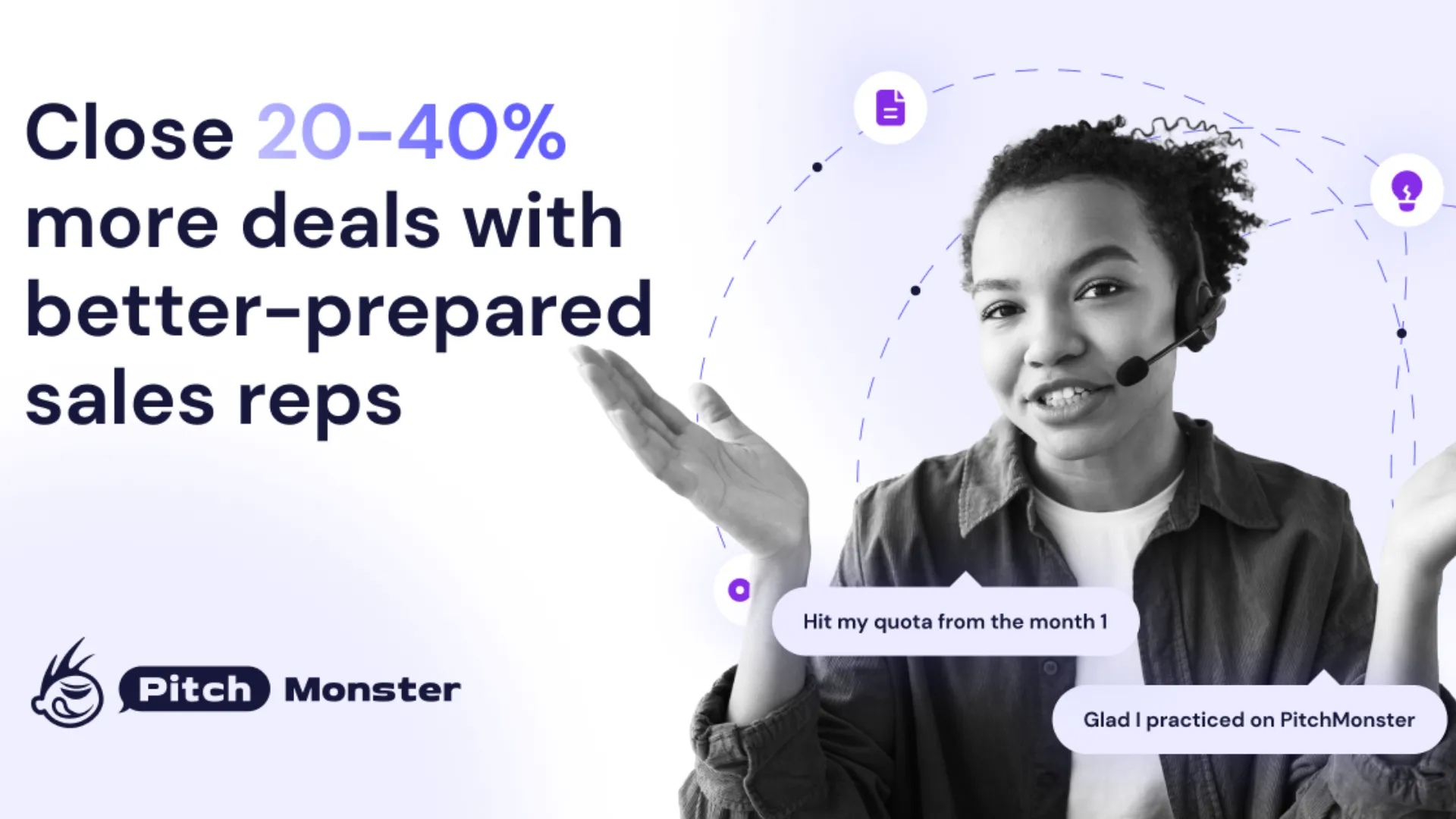
PitchMonster isn’t built like your typical AI sales role play system. It’s designed to transform training into a game—where reps score points for great delivery, beat challenges, and climb team leaderboards.
This approach turns what most reps avoid—training—into a source of motivation. It’s built around real-time scoring and audio processing that gives immediate feedback on how clear, compelling, or confident a pitch sounds.
The platform allows simulations across formats: voice calls, short video pitches, or full-length presentations. It’s especially useful for SDR teams and startups that thrive in fast-paced, KPI-driven cultures.
While it doesn’t offer deep CRM customization or predictive analytics, its ease of access and energy-driven design make it effective for early-career reps and frontline outbound teams who need consistent reps without the monotony.
5. Exec – Flexible Scenario Creation With Natural Voice AI
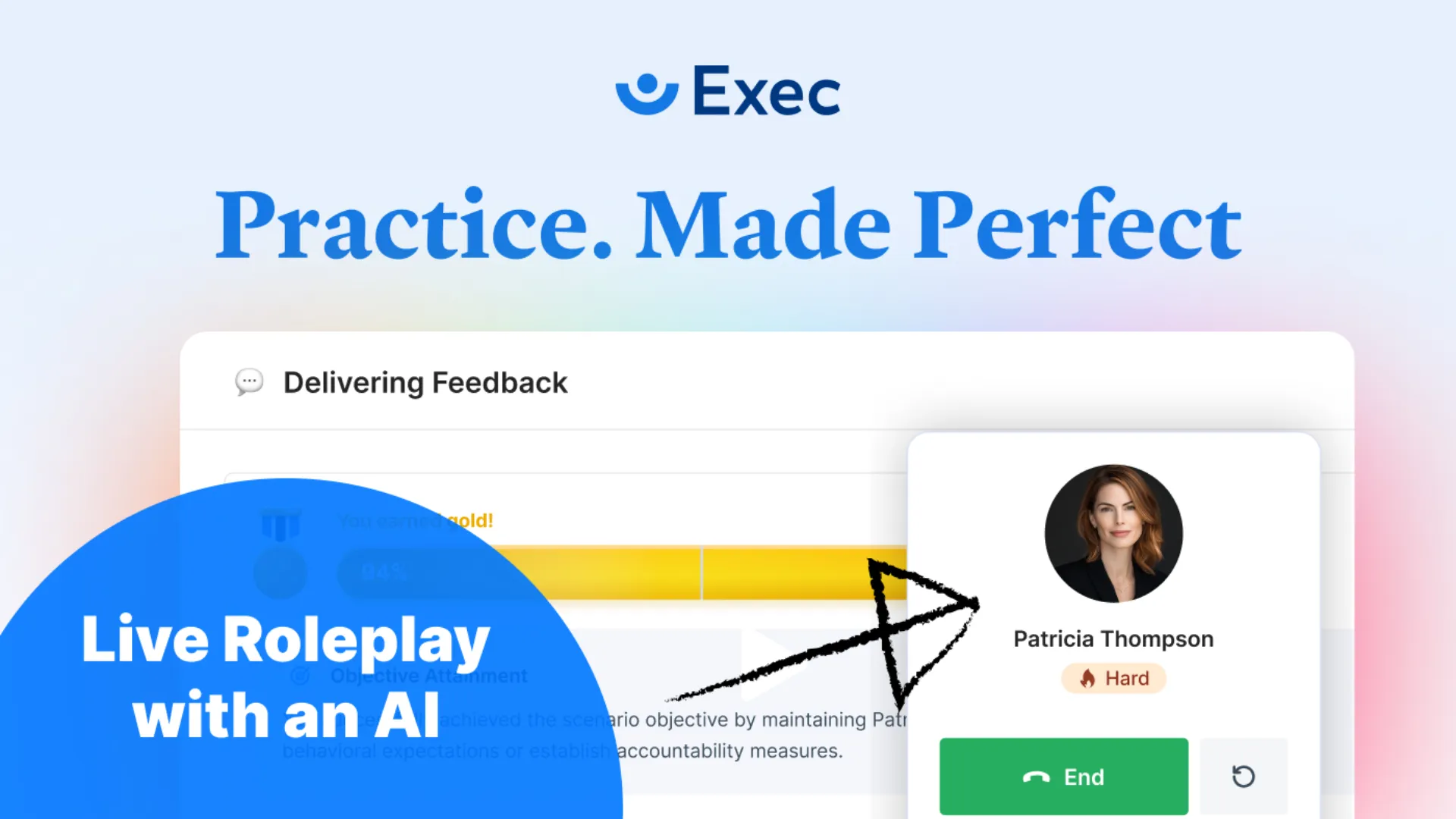
Exec is a modular roleplay platform designed for teams that want to craft training scenarios without waiting on a vendor or writing code. It allows users to create training prompts in simple text, which the platform then turns into voice-enabled, two-way AI conversations.
Because Exec is voice-first, reps practice speaking—not typing. The AI responds in real-time with inflection, hesitation, and behavioral nuance. This creates more authentic call dynamics, helping reps develop conversational confidence.
Exec also supports custom scoring frameworks. Sales leaders can define what good looks like across various calls—be it cold openers, product walkthroughs, or pricing discussions—and then track rep performance against those criteria.
Its flexibility makes it appealing for managers who want control over training content but don’t have time to build complex logic trees.
6. Bodyswaps – VR-Driven Roleplay for High-Stakes Communication

While Bodyswaps isn’t built specifically for sales, its VR-based training environments offer a unique advantage for teams handling emotional, complex, or regulated conversations.
Built originally for healthcare and HR teams, Bodyswaps places reps into fully immersive scenarios where they must respond to visual, verbal, and emotional cues in real time. Through the use of virtual reality, reps don’t just hear a buyer—they see them, read their body language, and react under pressure.
Its strength lies in empathy training. This can be invaluable in industries where customer support, patient care, or executive-level relationship management requires not just the right message, but the right delivery.
For teams looking to push the edge of realism in coaching, Bodyswaps shows what’s possible when simulation moves beyond audio into full spatial immersion.
What Comes Next for AI Sales Role Play and Coaching
Sales training has always been about repetition, feedback, and adaptation. The difference now is that roleplaying AI can simulate high-pressure conversations with near-human responsiveness—and deliver targeted guidance in real time.
Looking ahead, several advancements are already shaping what the next generation of AI coaching will offer.
To start off, we’d say that emotion detection is becoming central.
AI will soon go beyond tracking what reps say to how they say it. Voice modulation, pauses, vocal stress—these subtle cues will help trainers understand confidence levels, hesitation patterns, and emotional control. Reps won’t just be coached on content but on presence.
Then there’s the development factor.
Immersive environments are expanding. Virtual boardrooms, avatar-based panels, and interactive multi-stakeholder simulations will create practice settings that mirror every type of sales scenario, from product demos to procurement negotiations.
Moving on, as far as predictive coaching is concerned, it is making training proactive.
Instead of reacting to past call mistakes, platforms will soon recommend drills before a sales call—based on CRM data, past conversations, or known weaknesses. If a rep consistently stumbles during budget discussions, the AI will assign a pricing negotiation simulation ahead of the next meeting.
These innovations will make AI sales role play not just a supplement to training, but the foundation of it.
Key Takeaways For Worldwide Sales Leaders
The idea of waiting for quarterly roleplay reviews or relying on manual coaching sessions is no longer enough. It’s a constantly evolving phenomenon that works best with the careful application of ai sales solutions. So, while you’re at it, you need to take your pick carefully.
The best outbound sales organizations train like elite athletes—daily, with feedback loops, and performance tracking. The best AI sales coaching tools support that mentality with scalable, real-time, and relevant practice environments that grow alongside the team.
For any team serious about improving talk tracks, objection resolution, call confidence, and closing efficiency, these platforms represent the new gold standard. From high-volume cold calling to nuanced inbound service interactions, the sales floor of tomorrow will be shaped by the reps who trained better today.
AI roleplay is way more than just a smart investment—it’s the competitive advantage no modern sales team can ignore.




